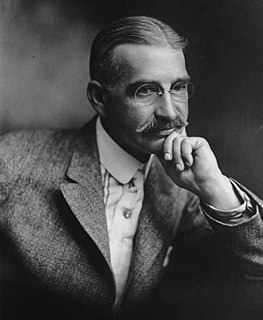A Quote by Philip Wylie
In Western society, and particularly in American society, imagination is stulified from infancy. The imaginative child is discouraged and upbraided. He is told that the process is mere dreaming, that it wastes time and leads nowhere. It is said to be "impractical." As the child grows and its imagination inevitably leads it to express unconventional ideas and to try new behavior, it is chided and even viciously punished for such signs of unorthodoxy.
Related Quotes
I think that every child grows up with the ideas that what we our given, is our society. Your education, and your mother and father, they tell you this is how it is, but then you hit adolescence and you think, 'Is it? Why? Why is it like that?' Sometimes that questioning leads to something more. Sometimes it doesn't, and we just continue these cycles.
"Consider the matter dispassionately, Mr. Foster, and you will see that no offence is so heinous as unorthodoxy of behaviour. Murder kills only the individual- and after all, wha is an individual? ". . . ." We can make a new one with the greatest of ease- as many as we like. Unorthodoxy threatens more than the life of a mere individual; it strikes at Society itself."
We must realize that the Reformation world view leads in the direction of government freedom. But the humanist world view with inevitable certainty leads in the direction of statism. This is so because humanists, having no god, must put something at the center, and it is inevitably society, government, or the state.
Imagination has given us the steam engine, the telephone, the talking-machine, and the automobile, for these things had to be dreamed of before they became realities. So I believe that dreams - day dreams, you know, with your eyes wide open and your brain machinery whizzing - are likely to lead to the betterment of the world. The imaginative child will become the imaginative man or woman most apt to create, to invent, and therefore to foster civilization. A prominent educator tells me that fairy tales are of untold value in developing imagination in the young. I believe it.
For the child whose impulsiveness is indulged, who retains his primitive-discharge mechanisms, is not only an ill-behaved child but a child whose intellectual development is slowed down. No matter how well he is endowed intellectually, if direct action and immediate gratification are the guiding principles of his behavior, there will be less incentive to develop the higher mental processes, to reason, to employ the imagination creatively. . . .
Soothing touch, whether it be applied to a ruffled cat, a crying infant, or a frightened child, has a universally recognized power to ameliorate the signs of distress. How can it be that we overlook its usefulness on the jangled adult as well? What is it that leads us to assume that the stressed child merely needs “comforting,” while the stressed adult needs “medicine”?




































